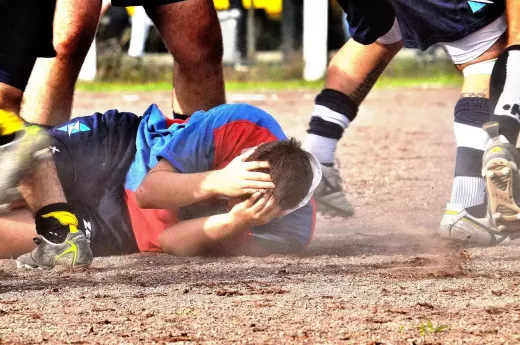Understanding the Psychological Aspect of Table Tennis Matches
Table tennis is not just a physical game; it's a mental game as well. Understanding the psychological aspect of table tennis matches is key to unlocking your full potential as a player. One of the most important psychological factors in table tennis is the ability to stay focused and maintain concentration throughout the match. This requires mental discipline and the ability to block out distractions.
In addition to focus, understanding your opponent's psychology can give you a significant advantage in a match. By observing their body language, facial expressions, and patterns of play, you can gain insights into their strategies and exploit their weaknesses. This psychological edge can make all the difference in a close match.
The Impact of Psychology on Performance in Table Tennis
Psychology plays a significant role in determining the outcome of a table tennis match. The way you think and feel during a game can greatly impact your performance. For example, if you approach a match with a negative mindset, doubting your abilities, it can hinder your performance and lead to self-fulfilling prophecies. On the other hand, a positive mindset can boost your confidence and motivation, leading to improved performance.
Another psychological factor that can greatly impact performance is stress and anxiety. Table tennis matches can be intense and high-pressure situations, and managing stress is crucial. Learning techniques to control your nerves and stay calm under pressure can help you perform at your best when it matters most.
Mental Preparation and Focus in Table Tennis
Mental preparation is just as important as physical preparation when it comes to table tennis. Before a match, taking the time to mentally visualize yourself performing at your best can help you build confidence and improve focus. Visualization is a powerful technique that can enhance your performance by programming your mind for success.
During a match, maintaining focus is key. It's easy to get distracted by external factors such as the crowd or your opponent's behavior. By practicing mindfulness and staying present in the moment, you can maintain focus and make better decisions on the table. Developing a pre-shot routine can also help you stay focused and mentally prepared for each shot.
Overcoming Performance Anxiety in Table Tennis
Performance anxiety can be a major obstacle for table tennis players. The pressure to perform well can lead to anxiety, which can negatively impact your game. Fortunately, there are strategies you can use to overcome performance anxiety and perform at your best.
One effective technique is deep breathing. By taking slow, deep breaths, you can activate your body's relaxation response and calm your nerves. Another technique is positive self-talk. Instead of focusing on negative thoughts or doubts, replace them with positive affirmations and reminders of past successes. This can help you build confidence and alleviate anxiety.
The Role of Confidence in Table Tennis Matches
Confidence is a crucial psychological factor in table tennis. When you believe in your abilities, you are more likely to take calculated risks, make aggressive shots, and perform at a higher level. On the other hand, a lack of confidence can lead to hesitation, indecision, and ultimately, poor performance.
Building confidence in table tennis requires a combination of mental and physical preparation. Setting achievable goals, practicing consistently, and focusing on your strengths can help boost your confidence. Additionally, surrounding yourself with a supportive and positive environment can also contribute to your confidence on the table.
Psychological Strategies for Enhancing Table Tennis Skills
There are various psychological strategies that can help enhance your table tennis skills. One such strategy is mental imagery. By vividly imagining yourself executing perfect shots and performing at your best, you can improve your muscle memory and enhance your overall performance.
Another strategy is positive reinforcement. Celebrating small successes and acknowledging your progress can boost your motivation and confidence. Additionally, setting specific and measurable goals can help you stay focused and track your improvement over time.
The Importance of Self-Control and Emotional Regulation in Table Tennis
Self-control and emotional regulation are essential skills in table tennis. It's important to stay composed and not let emotions dictate your performance. When you let frustration or anger get the best of you, it can lead to poor decision-making and a decline in performance.
Practicing self-control involves staying calm and composed, even in challenging situations. Developing emotional intelligence and being aware of your emotions can help you regulate them effectively. Techniques such as deep breathing, visualization, and positive self-talk can also help you manage your emotions and stay in control on the table.
Visualization and Mental Imagery Techniques in Table Tennis
Visualization and mental imagery are powerful techniques that can enhance your table tennis skills. By mentally rehearsing your shots and visualizing successful outcomes, you can improve your muscle memory and enhance your performance on the table.
To practice visualization, find a quiet and comfortable place where you can relax. Close your eyes and imagine yourself playing a match. Visualize every detail, from the sound of the ball hitting the table to the feeling of the paddle in your hand. Imagine executing perfect shots and winning points. By repeatedly visualizing success, you can program your mind for peak performance.
The Role of Motivation and Goal-Setting in Table Tennis
Motivation and goal-setting are crucial in table tennis. Without clear goals and a strong motivation to succeed, it's easy to lose focus and become complacent. Setting specific, measurable, attainable, relevant, and time-bound (SMART) goals can help you stay motivated and track your progress.
In addition to goal-setting, finding your intrinsic motivation can also fuel your passion for the game. Understanding why you play table tennis and what drives you can help you stay committed and push through challenges. Surrounding yourself with like-minded individuals and seeking inspiration from successful players can also boost your motivation.










